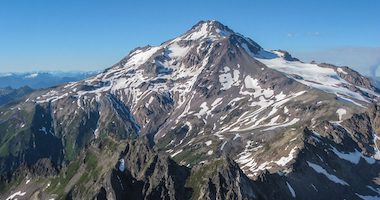The Amenities of Everest Basecamp



We survived the first night without a roof over our heads. Quite comfortably, by all accounts. There were no dogs barking in the night, no heavy boots clunking down wooden hallways to latrines, none of the endless coughing fits coming through the thin walls of trekking houses. Instead, we had easy breezes, the quiet rustle of comfy down sleeping bags and moonlight coming through our tent ceilings. Oh yeah, and occasionally the violent thunder of avalanches... but that didn't truly bother us. We know we've picked a safe place for basecamp far enough from the vertical walls of this enclosed valley.
The day has been spent sorting gear, talking over plans, napping, reading, eating and getting to know our Sherpa teammates. We've got great strength and experience in our Sherpa team, and we'll depend mightily on them during this trip. I'm not aware of any team attempting the mountain this season that won't be reliant on Sherpa help. Some may claim to be going with minimal support, but they will still be heavily dependent on the Sherpas who fix the route through the Khumbu Icefall, to say nothing of the route above. This is not to say that, of the many talented non-Nepalese climbers assembled here at the foot of the hill, none would be capable of climbing the mountain without Sherpa aid, but the simple fact is that such climbs are not attempted in this day and age on this route on this mountain.
There is often confusion among those not versed in Himalayan climbing as to who Sherpas are and what their various jobs may be. I'm often unnerved back home to hear people say, while hiking or working hard, that they'd sure like to have a Sherpa along to carry their pack or to do their digging. Such comments are usually made in jest and are probably for my benefit when folks know that I have spent time in Nepal and Tibet. Nevertheless, they tend to sell the real Sherpa people short.
Referring to someone as "Sherpa" is to say that they are from a tribe of mountain people in a specific region of Nepal. It is not a job designation. It doesn't simply mean "porter" and it definitely doesn't mean "servant." Early on, when the pioneering Himalayan expeditions were discovering the amazing work ethic common to the Sherpa culture, these men were trained as high-altitude load carriers. But almost from the start, there were plenty of individuals -notably Tenzing Norgay who excelled at the art of climbing, who eagerly grasped its strategies, and who exhibited just as much ambition to reach summits as any Westerner.
By this 2009 Everest season, one cannot correctly make more than a few broad generalizations about who the Sherpas are on this mountain. Many may still be farmers the rest of the year... many may still fulfill the simple yet essential role of high-altitude porter... but then there will also be a fair number of excellent mountain climbers with superior strength and skill on rock and ice who are being counted on to guide individuals and lead expeditions. Some will struggle with English, but will then surprise the heck out of you when they turn out to speak French, Korean and Japanese just fine. Some will never have been out of these valleys, but increasingly others will turn out to have traveled the world; to be putting their kids through college in Canada, India or the U.S., to be web-savvy, literate and politically astute.
Away from the Himalaya, the assertion is often made (by people who, I feel sure, mean to honor this group of climbers) that Sherpas are universally strong and across-the-board gifted with a physiology that makes high-altitude climbing a snap. True, many Sherpas have less trouble acclimatizing than those who visit these mountains from elsewhere, but it probably does Sherpas more honor to recognize their limitations than any perceived inherent advantages. They don't live on Mount Everest. The highest commonly inhabited villages are usually only around 12,000 ft to 14,000 ft in elevation. They don't have three lungs and two hearts... or any other crazy adaptation that makes climbing easy. The really humbling thing for me is to realize that my Sherpa partners are working just as hard as I am when we are clawing our way up some slope in difficult conditions with heavy packs. That climbing is difficult for them -not easy- and that they go out to do it anyway, day after day without whining, indeed while smiling and laughing. It isn't just what we see on the mountain either. For a bunch of days we walked through rough farmland where every single rock was neatly in place, where fields were endlessly being tended to, where houses were simple but always in good repair. The work ethic was obvious, uncommon and admirable.
Don't get me wrong. I'm not implying that the First Ascent team will be on holiday here. When the Sherpas we're partnering with cook and carry water and hack out tent platforms from the Lhotse Face and fix rope and get hard work done in dangerous conditions, sometimes we'll be right alongside them. And sometimes they'll be doing it while we rest or get other jobs done. And obviously the Sherpas won't be doing it for free. Money is a huge motivator in this part of the world, and expedition work turns out to produce some of the best opportunities in all of Nepal. But money doesn't adequately explain the smiles and the warmth and the friendship that our Sherpa partners will share with us on this trip. We'll try to be worthy of that friendship.
More to Explore
April 10, 2009













